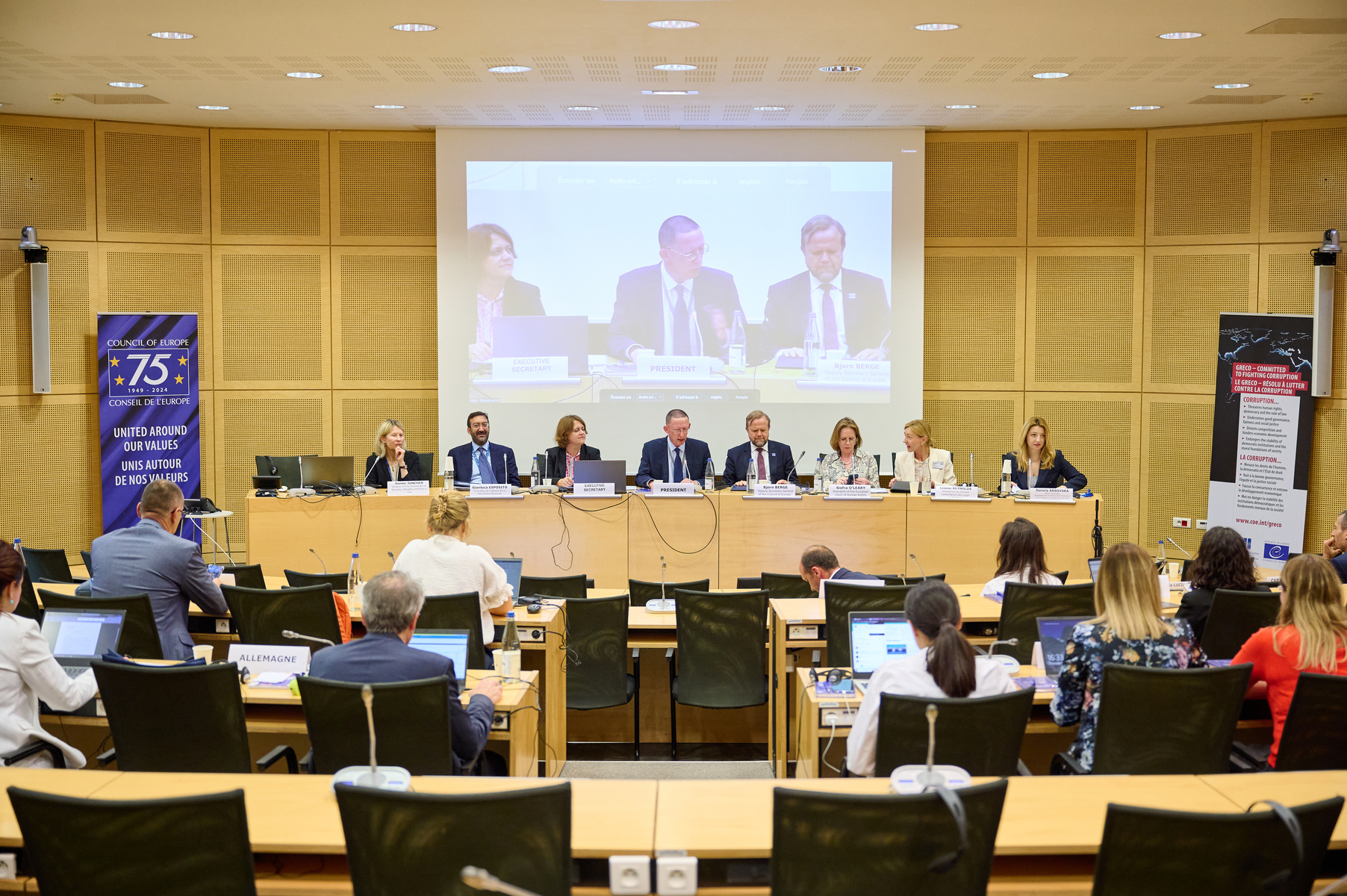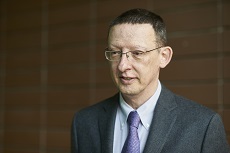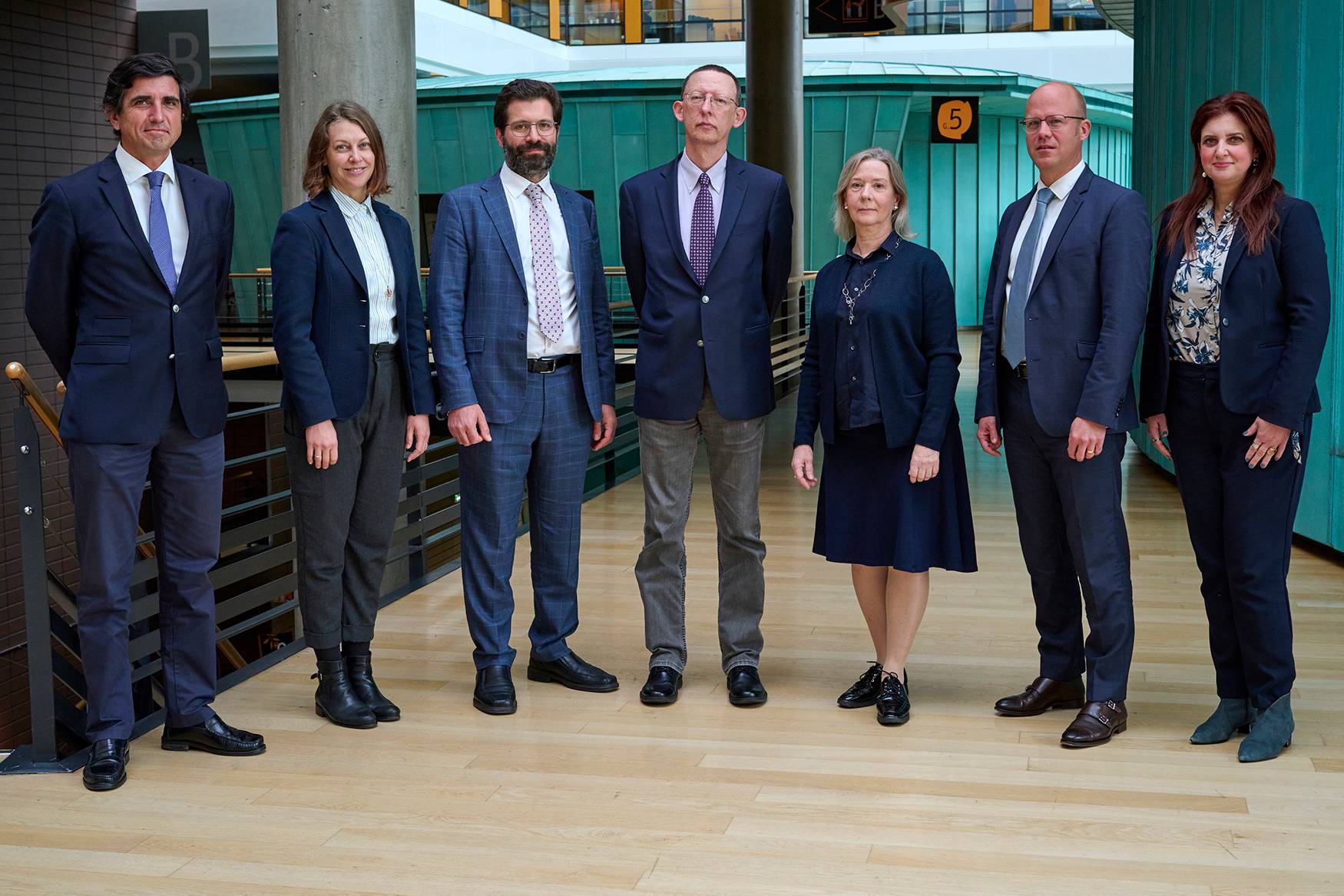The Council of Europe´s Group of States against Corruption (GRECO) is celebrating its 25th anniversary in 2024. Since 1999, when it was established, GRECO has been a driving force in countering corruption in its member states, which today include the 46 Council of Europe member states, the United States of America and Kazakhstan.
Over the years, GRECO has improved the capacity of its members to fight corruption by monitoring their compliance with anti-corruption standards and helping them identify and correct deficiencies in national anti-corruption policies. It has prompted legislative, institutional and practical reforms in areas such as the criminalisation of corruption offences, transparency of political funding, and the prevention of corruption among parliamentarians, judges, prosecutors, top executive functions of central governments and the police, among other topics.
To mark its 25th anniversary, on 20 June, GRECO organised a special session during its plenary meeting in Strasbourg, aiming to take stock of its achievements and to examine the challenges ahead in preventing and combatting corruption. Addressing the GRECO plenary, Deputy Secretary General Bjørn Berge said: “For a quarter of a century now, GRECO’s monitoring reports have gone to the very heart of the way in which the state functions. And their follow-up has been defined by a steady persistence in reminding members of their obligations. Moving forward, what remains important is that GRECO continues to ensure its high level of scrutiny and expectations of its members.”
Síofra O’Leary, president of the European Court of Human Rights, highlighted that the standards that GRECO has developed and its findings in country evaluations are reflected in many rulings of the Court. “This demonstrates a constructive and complementary interaction between the work of your body and the autonomous judicial branch of the Council of Europe”, she said.
GRECO President Marin Mrčela said: “We have the means to ensure that corruption is not an accepted practice of the functioning of the institutions in our democratic states. In 25 years, GRECO has proved to be one of the most efficient means which contribute to the achievement of this objective.” “Our strength and credibility lie also in the fact that we do not give up when our recommendations are not implemented. We are proud of our compliance procedure as it led to concrete results” but GRECO, he underlined, “should reflect on how to best address situations of continued lack of compliance and support its members to achieve the expected results.”
Claire Bazy Malaurie, President of the Venice Commission; PACE member Sunna Aevarsdottir, representing the Parliamentary Assembly; Danela Arsovska, Mayor of Skopje and Spokesperson on Ethics and Prevention of Corruption of the Congress of Local and Regional Authorities; and Leonie Reynolds, President of the Consultative Council of European Judges, also spoke at the session.









